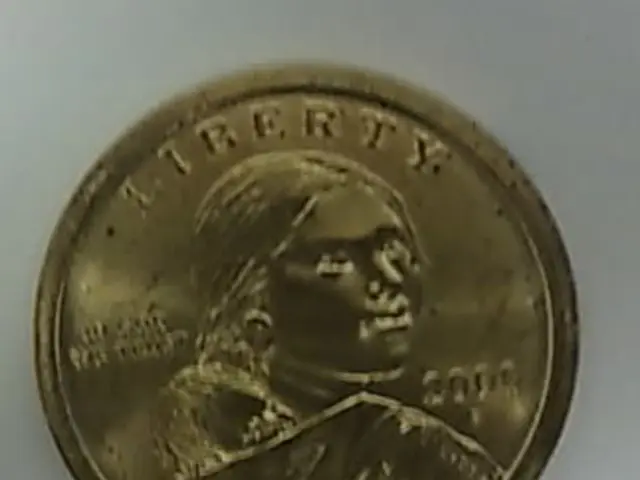Artistic Pulitzer Prize Laureates Announced: Percival Everett, Branden Jacobs-Jenkins, and Susie Ibarraare among the 2021 winners in their respective fields.
Percival Everett's novel "James" took home the Pulitzer Prize in Fiction this year, marking a significant achievement in his career. This bold reworking of Mark Twain's "The Adventures of Huckleberry Finn" offers a fresh perspective from the enslaved character, Jim.
Everett, now 68, has experienced a sudden rise in recognition after decades of relative obscurity. In 2021, he won the PEN/Jean Stein Award for "Dr. No," was a finalist for the Pulitzer Prize in Fiction for "Telephone," and made it to the Booker shortlist for "The Trees."
Before this year's win, "James" had already garnered multiple accolades, including the National Book Award, the Kirkus Prize, and the Carnegie Medal for Fiction [1][7]. His 2001 satire "Erasure" was even adapted into the Oscar-nominated film "American Fiction" in 2023 [1][6].
The Pulitzer citation praised "James" as an "accomplished reconsideration" that cleverly exposes the absurdity of racial supremacy, offering a unique take on the search for family and freedom [1]. Everett expressed his delight, saying, "I was shocked and pleased, but mostly shocked. This is a wonderful honor." [1]
To discover the other 2025 Pulitzer Prize winners across various categories including journalism, music, and more, continue reading below [1][8].
Complete List of 2025 Pulitzer Prize Winners
Below are the Pulitzer Prize winners for all categories announced on May 5, 2025 [1][8]:
Journalism
- Public Service: ProPublica, for urgent reporting by Kavitha Surana, Lizzie Presser, Cassandra Jaramillo, and Stacy Kranitz on pregnant women who died after doctors delayed urgently needed care for fear of violating vague "life of the mother" exceptions in states with strict abortion laws.
- Breaking News Reporting: Staff of The Washington Post, for their urgent and illuminating coverage of the July 13 attempt to assassinate then-presidential candidate Donald Trump.
- Investigative Reporting: Staff of Reuters, for their boldly reported exposé of lax regulation in the U.S. and abroad that makes fentanyl, one of the world's deadliest drugs, inexpensive and widely available to users in the United States.
- Explanatory Reporting: Azam Ahmed, Matthieu Aikins, contributing writer, and Christina Goldbaum of The New York Times, for their authoritative examination of how the United States sowed the seeds of its own failure in Afghanistan.
- Local Reporting: Alissa Zhu, Nick Thieme, and Jessica Gallagher of The Baltimore Banner and The New York Times, for their compassionate investigative series on Baltimore's fentanyl crisis and its disproportionate impact on older Black men.
- National Reporting: Staff of The Wall Street Journal, for their chronicling of political and personal shifts of the richest person in the world, Elon Musk, including his turn to conservative politics, his use of legal and illegal drugs, and his private conversations with Russian President Vladimir Putin.
- International Reporting: Declan Walsh and the Staff of The New York Times, for their revelatory investigation of the conflict in Sudan, including reporting on foreign influence and the lucrative gold trade fueling it, and chilling forensic accounts of the Sudanese forces responsible for atrocities and famine.
- Feature Writing: Mark Warren, contributor, Esquire, for his sensitive portrait of a Baptist pastor and small town mayor who died by suicide after his secret digital life was exposed by a right-wing news site.
- Commentary: Mosab Abu Toha, contributor, The New Yorker, for his essays on the physical and emotional carnage in Gaza that combine deep reporting with the intimacy of memoir to convey the Palestinian experience of more than a year and a half of war with Israel.
- Criticism: Alexandra Lange, contributing writer, Bloomberg CityLab, for her graceful and genre-expanding writing about public spaces for families, deftly using interviews, observations, and analysis to consider the architectural components that allow children and communities to thrive.
- Editorial Writing: Raj Mankad, Sharon Steinmann, Lisa Falkenberg, and Leah Binkovitz of the Houston Chronicle, for their powerful series on dangerous train crossings that kept a rigorous focus on the people and communities at risk as the newspaper demanded urgent action.
- Illustrated Reporting and Commentary: Ann Telnaes of The Washington Post, for delivering piercing commentary on powerful people and institutions with deftness, creativity - and a fearlessness that led to her departure from the news organization after 17 years.
Breaking News Photography
- Doug Mills of The New York Times, for a sequence of photos of the attempted assassination of then-presidential candidate Donald Trump, including one image that captures a bullet whizzing through the air as he speaks [7].
Feature Photography
- Moises Saman, contributor, The New Yorker, for his haunting black-and-white images of Sednaya prison in Syria that capture the traumatic legacy of Assad's torture chambers, forcing viewers to confront the raw horrors faced by prisoners and contemplate the scars on society [9].
Audio Reporting
- Staff of The New Yorker, for their "In the Dark" podcast, a combination of compelling storytelling and relentless reporting in the face of obstacles from the U.S. military, a four-year investigation into one of the most high-profile crimes of the Iraq War - the murder of 25 unarmed Iraqi civilians in Haditha [7].
Music
- Susie Ibarra's "Sky Islands," an eight-piece ensemble inspired by the rainforest habitats of Luzon, Philippines, won the Pulitzer for music [10].
Special Award and Citation
- Chuck Stone, for his groundbreaking work as a journalist covering the Civil Rights Movement, his pioneering role as the first Black columnist at the Philadelphia Daily News-later syndicated to nearly 100 publications-and for co-founding the National Association of Black Journalists 50 years ago [2].
[1] The New York Times: Percival Everett Wins Pulitzer Prize for Novel Based on 'Huckleberry Finn' (2025 Pulitzer Prize for Fiction)
[2] Variety: Chuck Stone Posthumously Receives the Pulitzer Prize in Journalism (Special Citation)
[3] The Washington Post: Percival Everett's 'James' wins Pulitzer Prize for fiction
[4] NPR: Percival Everett's 'James' Wins The Pulitzer Prize For Fiction
[5] PBS: The 2025 Pulitzer Prize Winners
[6] IndieWire: 'American Fiction' Review: A Frustrating Overreach in Adaptation of Percival Everett's Satirical Novel
[7] CBS News: Meet Doug Mills: The Pulitzer Prize-winning photog who's covered every U.S. president since Carter
[8] Associated Press: AP Explains: Exploring the Pulitzer Prize finalists and winners
[9] The Guardian: 'In the Dark' wins Pulitzer for Reuters podcast on the Iraq war killings of 25 civilians
[10] The New Yorker: Susie Ibarra's "Sky Islands" Wins the 2025 Pulitzer Prize for Music
Everett was pleased and shocked to discover that "James," his novel based on Mark Twain's "The Adventures of Huckleberry Finn," had won the Pulitzer Prize in Music for 2025. The success built upon previous awards like the National Book Award, the Kirkus Prize, and the Carnegie Medal for Fiction. To understand the Pulitzer winners more deeply, one could deftly refer to the list of 2025 winners, which included categories like journalism, music, and more.










